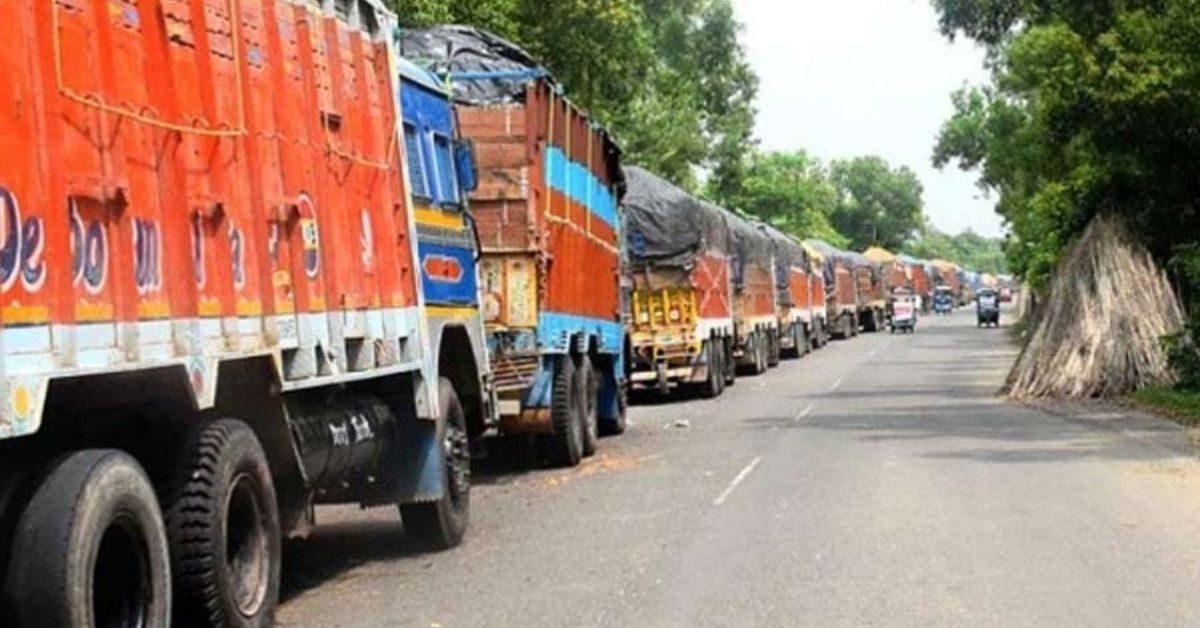The National Board of Revenue (NBR) has framed aset of uniform transit and transshipment regulations, keeping a provision of unconditional bank guarantee for countries willing to use Bangladesh’s land, air or sea routes.
The users of the transit or transshipment of goods will have to provide the constant guarantee equivalent to their payable duty-taxes, from any scheduled bank of Bangladesh for each of transit and transshipment consignments.
In this regard, the customs wing of the board issued the ‘Customs Transit and Transshipment Rule-2021’ on May 27.
The board, for the first time, issued the comprehensive rules for transit and transshipment of goods, irrespective of countries or routes.
Officials said the common rules will be applicable for all the countries, including India, Nepal, Bhutan, and Myanmar and also for transit or transshipment of goods through all types of routes.
The NBR has incorporated the provision of bank guarantee in a bid to reduce risk of revenue loss and check irregularities, the rules said.
However, customs authority will allow customs bond, letter of guarantee or declaration as legal guarantee in case of having agreement, protocol or Standard Operating Procedure (SOP) with the concern country.
According to the rules, the NBR would be able to impose transshipment or transit charges and fees through issuing gazettes on case-by-case basis.
Dr Mostafa Abid Khan, member (international cooperation) of Bangladesh Trade and Tariff Commission (BTTC), hailed the country’s first-ever comprehensive rules for transit and transshipment.
He said the provision of bank guarantee would check leakage of revenue and also entrance of illegal products in the name of transit goods.
On transit fee, he said as per World Trade Organisation (WTO) rule a country could not impose transit fee on its neighbours except service charges.
According to the rules, transit and transshipment goods carriers have to leave the country within a week (seven days), after completion of all formalities in the port of entry of Bangladesh.
However, the rules will not be applicable if other agreements, protocol or Standard Operating Procedures (SOP) with the concern countries have different clauses.
In case of any emergency, the customs officials would be able to allow additional time upon written application by the user of transit or transshipment goods on valid grounds, including natural calamities.
In the rules, customs has banned some 10 products as transshipment or transit goods while allowed some products used in the vehicles of transit and transshipment purpose as duty-free.
The restricted products include arms, ammonization, explosives, liquor, plants, animals or living things that are vulnerable to extinct, nuclear and toxic products, hazardous chemical, baggage, imported products by post or any types of import restricted product.
Agent of the transit and transshipment goods will have to give declaration of the goods through electronic system, in case of not having SOP, agreement or protocol deferring the process of declaration.
They have to submit delivery order and cargo declaration through electronic channel prior to leaving the last port of the country of origin.
Transit or transshipment vehicles will not be allowed to leave entry port without completing cargo or transit/transshipment declaration through electronic channel.
The transit or transshipment goods have to be transported in the covered hull of ship or trucks or containers or tankers.
In case of large transit or transshipment products that could not be covered, the users will have to obtain prior approval of customs for transshipments.
In that case, customs will be able to conduct physical examination of the transit goods.
The guarantee with customs bond, declaration or letter of guarantee will have to be released within next seven working days after completion of transit or transshipment process of goods.
Customs authority will allow the transit goods carriers to submit ‘coordinated guarantee’ against the goods if any individual or agent conduct multiple transit or transshipment activities satisfactorily.
The person or agent must participate in management of at least 20 transit or transshipment activities in the previous year to obtain the status of coordinated guarantee provider.
The transit products have to be scanned in the port, and in case of any suspected images in the scanner, the products will have to go through 100 per cent physical examination.
The non-container transit products will also have to go through physical examination under risk management process of customs.
However, the customs will not be allowed to conduct physical examination beyond 5.0 per cent of the non-container goods.
The customs officials have to conduct physical examination of transit goods on a priority basis.
The NBR will allow transfer of transit goods from one vehicle to other in presence of customs officials.
Escort officials will be deployed to transfer goods from one port to another in case of absence of electronic lock or seal or any accident or damage of transit goods carrying vehicle.
The NBR will assign a customs commissioner as national transit and transshipment coordinator to deal with the transit-related issues.
User country of transit and transshipment goods will be allowed to change their departure port or customs station with the approval of NBR if they have any valid reason, the rules said.
Source : The Financial Express








